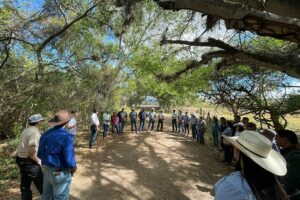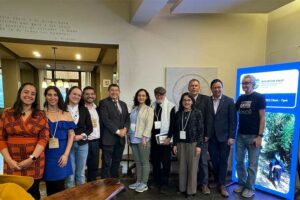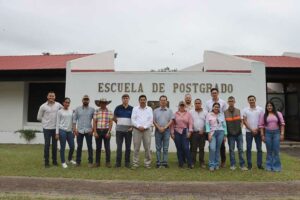CIENPINOS celebrates its first year of implementation in Cuba
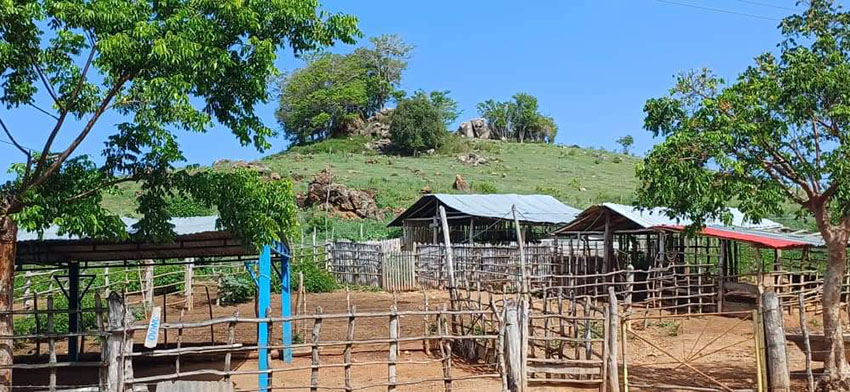
- With the presentation of the Narrative Report on the fulfillment of the objectives proposed in its first year of implementation, activities began in the province of Cienfuegos.
The 40th Anniversary Commemorative Hall of the "Carlos Rafael Rodríguez" University of Cienfuegos was the venue for the presentation of the report that summarized the work carried out in the implementation of the CIENPINOS project in the first 12 months.
The event was attended by the Swedish Ambassador to Cuba, Ms. Hanna Lambert; the official from the Swedish International Development Cooperation Agency (ASDI), Ulrika Åhmark, CATIE specialists, national project leaders, authorities from university institutions and other organizations, municipal mayors, and local development directors.
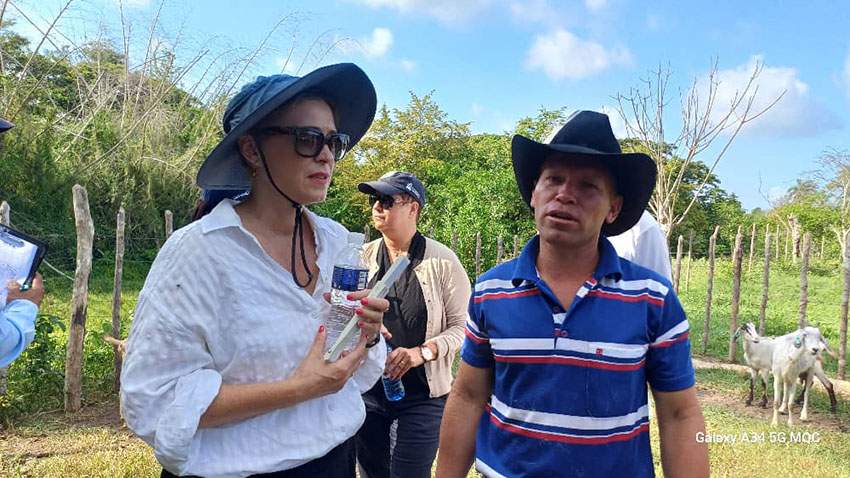
Tania Sánchez Santana, National Director of CIENPINOS and Director of Research at the Indio Hatuey Experimental Pasture and Forage Station, presented the annual summary, highlighting that 35 activities were planned for the project's first year, of which 30 were fully completed while the remaining 5 are in progress.
“Training and communication actions had the greatest impact,” assured Sánchez Santana, who also emphasized that another success was the organization of workshops that brought together specialists, producers, and policy makers. The participation of CATIE in the execution of the activities was also highlighted, as well as the knowledge of peasant traditions as a form of local identity.
The Swedish Ambassador to Cuba recognized CIENPINOS as "the leading project among those implemented by Sweden in Cuba." The representative of the Swedish International Development Cooperation Agency, the entity that funds the project, encouraged CIENPINOS to "continue reaping achievements and reach every producer to visualize previously invisible production and value chains."
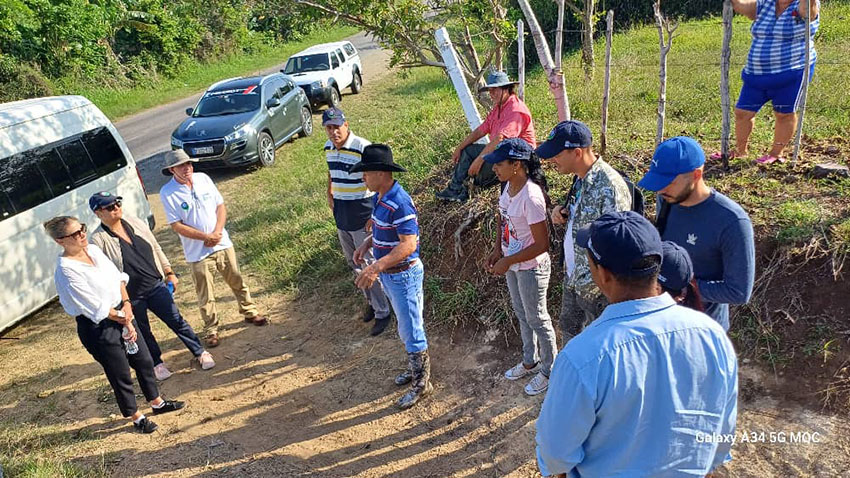
More than 15 participants intervened in the session of discussion and comments on the report, including Yarina Soto Herrera, delegate of the Ministry of Science, Technology, and Environment in Cienfuegos, who suggested that CIENPINOS be taken as "a model for the development of similar projects in Cuba."
The Vice-Rector for Research and Graduate Studies of the University of Cienfuegos assured that “the project finds synergy with municipal development strategies, food production, and the promotion of enterprises for local development, the articulation of all actors, and the incorporation of cultural traditions that identify the inhabitants of rural areas.”
From the Tropical Agricultural Research and Higher Education Center (CATIE), Eduardo Somarriba, CIENPINOS scientific advisor, stated that “the project has awakened passion, interest in applying science and innovation, and the desire to work, three essential ingredients to achieve results.”
Another intervention that aroused the interest of the participants was that of Orquídea Urquiola, Rector of the University of Cienfuegos, who affirmed that: “CIENPINOS has been the perfect setting to grow in knowledge, in training new professionals, in supporting producers.” In her speech, the Rector confirmed the permanent support of the University of Cienfuegos, its faculty, and students.
At the meeting, new audiovisuals of the CIENPINOS project were premiered, reflecting the natural benefits and enormous potential of goat production in the South Circuit of Cienfuegos and highlighting the value of the traditions that characterize acorn-fed pig producers in Pinar del Río.
Success story: A woman with boots on
In the South Circuit, the heat is scorching; it is one of the areas that receives the most sunlight in the entire Cuban archipelago. It extends through the pre-mountainous zone, which gives access to the Guamuhaya Massif, and borders the entire coastal line in the south-central area.
Since ancient times, goat breeding has dominated the production system of peasant families. The goats are adapted to high temperatures and food sources that include everything from shrub formations and wooded areas to species of grasses and seeds found in season.
The visit to Cienfuegos by the Swedish Ambassador to Cuba and the ASDI official included a tour of the production area with members of the national and international implementing team, the provincial coordination of CIENPINOS, and the Communication team.
From an elevation overlooking the landscape, Marelis Villafaña awaited the visitors. Without removing her work clothes, she offered a warm welcome, as is characteristic in rural areas. A cup of coffee was joined by the enjoyment of exotic fruits: cashews, cherimoyas, plums, mangoes, and guavas, goat cheese, and traditional goat milk creams. Everything was ready for the tour of Marelis' farm.
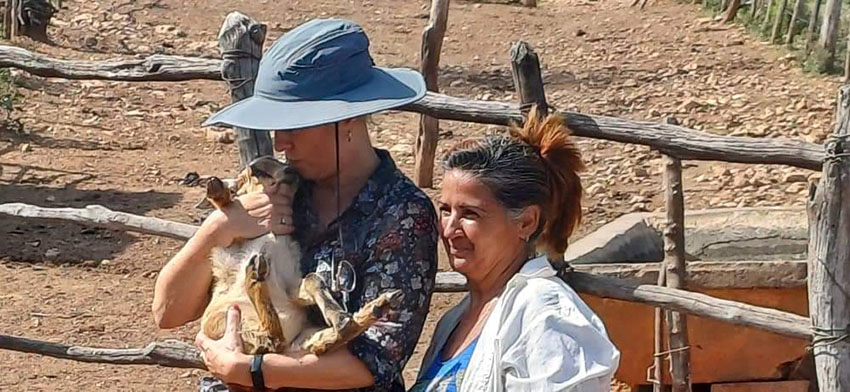
The visitors learned about the management and development of goat production from the only woman in the context of CIENPINOS dedicated to goat breeding. The countryside landscape, crop areas, and laying hen breeding were also enjoyed.
Marelis recounted the characteristics of daily work, the importance of family for the development of goat breeding, and the rigor imposed by an increasingly extreme climate with long drought seasons, high temperatures, and water shortages. Constant innovation is needed to produce and grow.
In response to the numerous questions from the participants, Marelis, who has been dedicated to goat breeding for more than 20 years, assured that she is happy with the arrival of CIENPINOS at her farm and stated that the training received has allowed her to identify other potentialities on her land and new ways of managing goats to increase the number of animals and the volumes of milk and other products.
With a handshake, a big hug, and a smile from ear to ear, Marelis bid farewell to the visitors, assuring them that: "when you return, everything will be much better, I assure you. I will work harder."
The first farm named CIENPINOS
The CIENPINOS delegation arrived at another of the goat producers' farms working with CIENPINOS. “I always liked animals, that's why I decided to study Veterinary Medicine; I am a technical specialist in artificial insemination,” was Yosiel Jaureguí's introduction when he received the delegation. He was passionate about his first job: cattle breeding. However, he never imagined the turn his life would take when he was given a small goat to raise in his backyard. “I never imagined that this would be the beginning of what I have today, I still can’t believe it myself.” Today, his farm is the fastest-growing in the context of CIENPINOS.
His entry into the project was the result of an unplanned opportunity. He was invited to a producers' meeting where CIENPINOS would be discussed, and there he decided to train and learn much more about goat management. After a few months, he acquired some animals and now has more than a hundred.
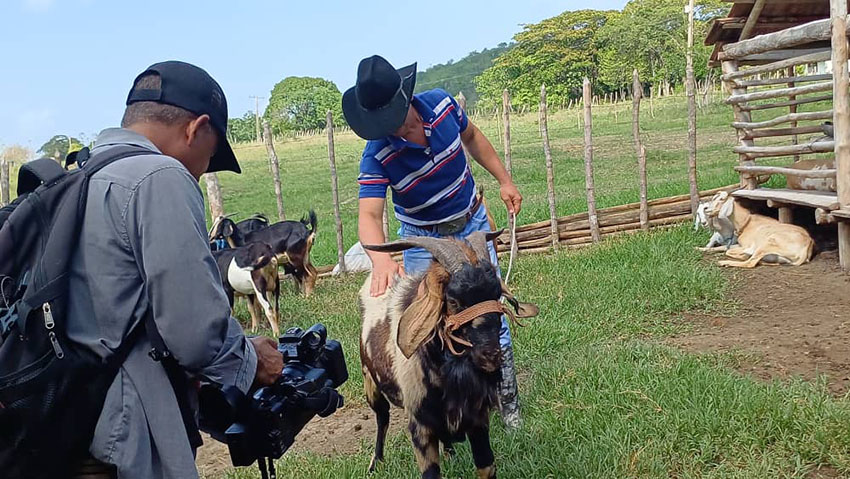
With emotion, he narrates how he built the first fence in the paddock and the rustic sheds to protect his animals. “CIENPINOS has provided me with the knowledge I need to organize the farm and effectively manage feeding and reproduction,” Yosiel said to the visitors.
Such is the confidence this producer has in the project's specialists that he named his farm CIENPINOS. “I trust in the future, but I work from today so that my children can follow my path. The goat and its products are the future of the South Circuit.”
More information:
Ismael Hernández
International coordinator
CIENPINOS Project
ismael.hernandez@catie.ac.cr
Written by:
Raúl Isidrón
Communicator
CIENPINOS Project
raul.isidron73@gmail.com

